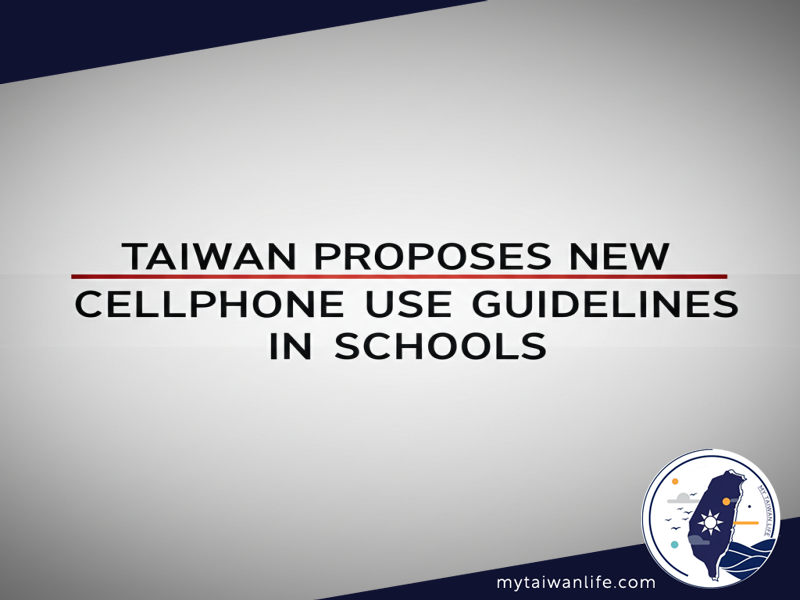Taiwan Proposes New Cellphone Use Guidelines in Schools
Navigating the Digital Age: Striking a Balance Between Education and Well-being in Taiwan

TAIPEI – The Ministry of Education in Taiwan unveiled new regulations on Wednesday regarding student cellphone use in schools, offering varying guidelines for high school students and those in middle school or younger. The proposals aim to address concerns about the impact of technology on learning and student well-being.
Under the draft plan, middle school students and younger would require permission from a legal guardian to bring a cellphone to school. The devices would then be centrally managed by the school or individual classes. Students would be required to turn off their phones during class to minimize disruptions.
High school students would not need parental permission, but each school would be tasked with developing its own cellphone policy, in collaboration with teachers, parents, and students. The Ministry stressed the importance of schools informing parents about the agreed-upon rules.
Responding to calls, the Ministry clarified that restrictions should primarily focus on class time, rather than the entire school day. While younger students must keep phones off during lessons, high schools have greater autonomy in determining their specific rules.
Research published in *The Lancet* examined the effects of cellphone restrictions on UK middle school students, finding little difference in academic performance or behavior between schools with strict and relaxed policies. Lead author Victoria Goodyear highlighted the limited impact of school-only restrictions in addressing broader issues related to digital overuse.
Goodyear emphasized that existing data consistently show a link between high cellphone and social media use and declines in academic performance, mental health, and sleep quality. She advocated for policies that aim to reduce overall cellphone use, not just during school hours.
A separate study by the Child Welfare League Foundation revealed that over half of Taiwan’s middle school students feel stressed about their future. Those experiencing stress were twice as likely to struggle with emotional regulation. The study also reported that Taiwanese teens spend an average of five hours per day on social media, with one-third considered addicted.
The foundation argues that expecting improvements simply by restricting phone use without addressing underlying stress and academic pressure is unrealistic. Instead, they urge parents and educators to provide more emotional support and guidance.
While research suggests that limiting screen time can improve focus, the foundation emphasizes that helping students develop healthier phone habits is more practical than enforcing strict bans in our digitally connected world.
Other Versions
Taiwán propone nuevas directrices sobre el uso del móvil en las escuelas
Taiwan propose de nouvelles directives sur l'utilisation des téléphones portables dans les écoles
Taiwan Ajukan Pedoman Baru Penggunaan Ponsel di Sekolah
Taiwan propone nuove linee guida per l'uso dei cellulari nelle scuole
台湾、学校での携帯電話使用に関する新ガイドラインを提案
대만, 학교 내 새로운 휴대폰 사용 가이드라인 제안
Iminumungkahi ng Taiwan ang mga Bagong Patnubay sa Paggamit ng Cellphone sa mga Paaralan
Тайвань предлагает новые правила использования мобильных телефонов в школах
ไต้หวันเสนอแนวทางการใช้โทรศัพท์มือถือในโรงเรียนใหม่
Đài Loan Đề Xuất Hướng Dẫn Sử Dụng Điện Thoại Di Động Mới trong Trường Học

